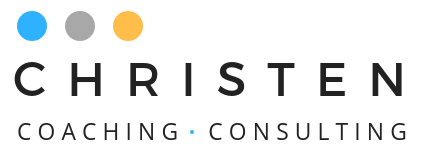Mentoring programs are an important offering that many large companies and professional organizations offer to build the careers of up-and-comers. And while mentors make excellent guides and provide invaluable advice… if you really want to get ahead, you’ll need more than advice to get there. What you need is someone who has the power to help you showcase your talent on new projects, presentations, committees, and Boards. You need a sponsor.
The Difference Between a Mentor vs. a Sponsor
Mentors and sponsors are far from the same role, though they’re often confused. Sponsorship is harder to come by—and makes a much more tangible difference in your career. According to research from the Center for Talent Innovation, people with sponsors are 23% more likely to move up in their career than those without sponsors.
How To Strategically Find a Potential Sponsor

You want to find a sponsor who will give you exposure to the key decision makers in your career future. Be strategic in whom you seek out and don’t always go for the senior person you already know or the one who seems the most approachable. Ask yourself, where do I want to be in 2-3 years? and work backward to determine who needs to see you in order to get to your goal. Don’t be shy using your company directory or asking your boss or HR directly for help facilitating an introduction.
5 Tips For Standing Out and Landing a Sponsor
- Get Yourself Noticed. Pre-visibility is key to finding a great sponsor. You often have to already be somewhat visible in order to get someone to shine even more visibility on you. You know the corporate saying “nobody ever got fired for hiring a Big 5 consulting firm”? Your sponsor is more likely to recommend you when they’ve heard your name (alongside accomplishments) a few times prior.
- Be Great. There’s an adage in writing “show, don’t tell” and it applies more than ever in business. Don’t say you’re an asset to the team, show how you’ve been an asset through concrete projects and deliverables you’ve delivered. Remember: your sponsor is putting their reputation on the line if they recommend you for a project or a job. Put your sponsor at ease by consistently delivering excellent value for the company, providing bottom-line results for the company.
- Be Patient. It takes time to build relationships – specifically to build a level of trust. That’s part of our human psychology around familiarity and shouldn’t be overlooked or taken personally that someone didn’t instantly help you. Since you now know this in advance, you can start planting the seeds for building a relationship with several sponsors well before you’re ever looking for a new project or a promotion. In fact, start now – go invite 5 interesting leaders to coffee or lunch.
- Be Impatient. While you’re taking the time to build a relationship, don’t let yourself get forgotten. Find reasons to email your potential sponsors (an interesting article, info about a professional conference) in order to stay top of mind. It’s not personal but people are busy and constantly inundated with information. The more recently and more regularly they hear from you, the more quickly you’ll pop into their mind when they hear about a great new project. In other words, don’t sit waiting for the phone to ring — it’s your responsibility to pro-actively take the initiative to build the relationship.
- Flip the Script. Many people think about their careers one-sidedly — we ask ourselves, what do I want? Flip that question. What does my sponsor want? Figuring out what you can provide that may be of value to them is the absolute best way to approach a sponsor. If you don’t know, you should do your homework and ask around. If you simply drop a line “What can I help you with?”, you’re actually putting more work on the sponsor to figure out what to ask for (and who wants more work?!). Always offer something concrete and what you believe could be valuable to the person. Even if what you offer is not exactly what they need, they now have an idea of your skillset and your proclivity towards pro-active thinking and problem-solving.
